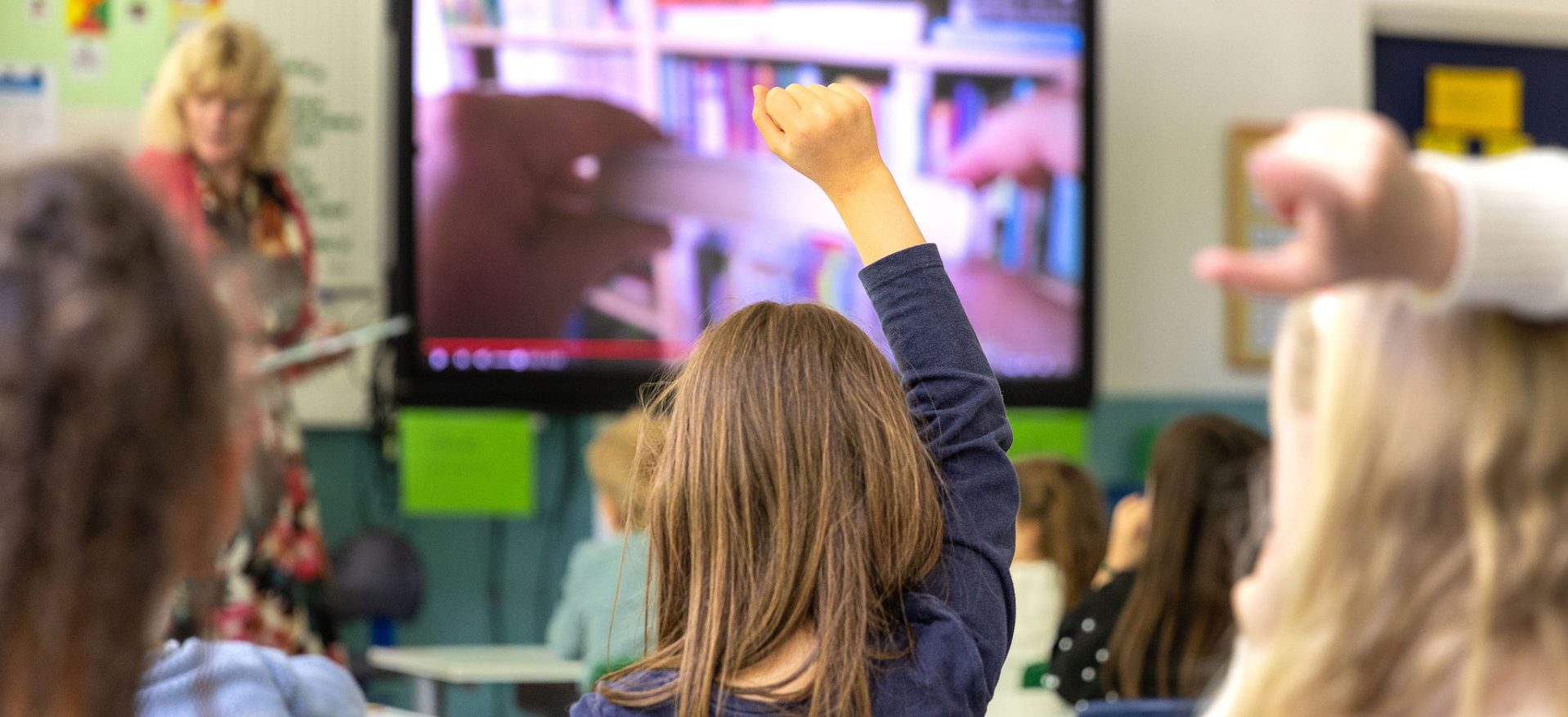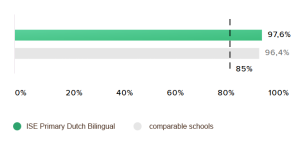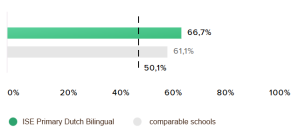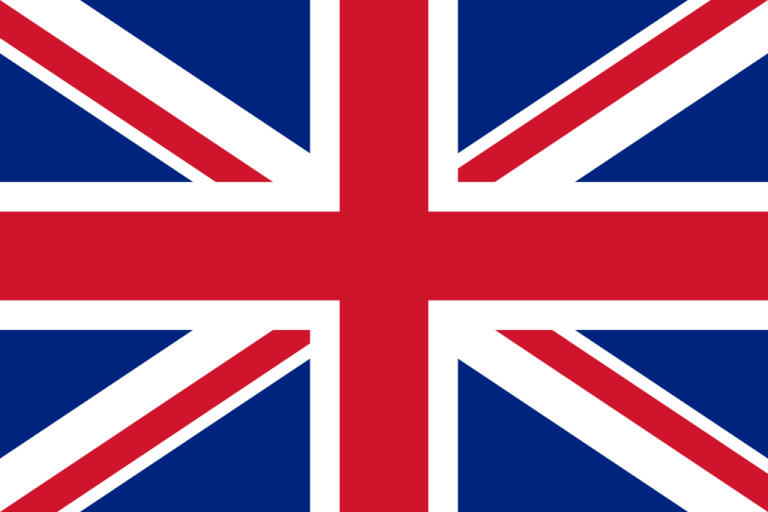
Educational Goals
The ISE currently offers three programmes for children aged 3-18 and has developed a broad international curriculum. At the international and Dutch Bilingual primary school, we work with a thematic approach to learning. At the Dutch Bilingual department, we do this based on the Dutch core objectives. The secondary school works with the International Baccalaureate Middle Years Programme (MYP) and the Diploma Programme (DP). With these three programmes, we offer a good continuous learning path for all pupils. We work on educating independently thinking and learning children through our programmes. A progressive and structured way of working is offered for all ages.
Foundation Group
The ISE also has a foundation group. This is a group where children from the age of three can go for a few half days a week. They are offered a playful approach in two languages. The foundation group is located on the campus at the Oirschotsedijk. The bilingual Foundation group aims to ensure that children can develop safely and healthy and go through a good learning process. In this group, education focuses on preparing the children for school. It offers the children a broad basis of knowledge and skills so that they are well prepared for the future, both at school and in their further life. After the foundation group, the children move on to either the Primary Dutch Bilingual or the Primary International. Children who move on to the Primary Dutch Bilingual can immediately enter group 1 at the Jan Luikenstraat when they turn four years old.
Personal Attention
There are many benefits of international education. Small groups, combined with a wide variety of cultures and nationalities, ensure that students quickly feel at home. We develop the unique talents of each child. Children grow up in a variety of cultures, without forgetting their own culture. We help children become global citizens who feel that they can make a difference in their own future, but also in the future of others.
Schools work with a plan to improve the quality of their education. This school plan helps us to continue to provide education that all parties involved are satisfied with. The goals that all departments of the ISE work on are described in detail in the School Development Plan 2022-2026. Annual goals are set for each department based on this school plan.
The 2025/2026 annual plan includes the following key points for the Primary Dutch Bilingual department:
- Focus on quality and continuous improvement of our curriculum, through harmonising our approach.
- Further orientation on the implementation of the Primary Years Program by conducting a feasibility study.
- Focus on improving the quality of our support for non-Dutch speaking students (DAL: Dutch as an Additional Language) by introducing a method for newcomer education, further professional development of the team, making joint agreements regarding NT2 support and securing these agreements in an NT2 policy.
- Focus on supporting our students through the HGW cycle (action-oriented work) and by making clear agreements about the educational support and recording this support.
- Stay connected with the ISE campus for the team, students and parents, and with the other primary schools within our foundation.
- Focus on attracting new students and a concrete, future-oriented growth plan for the Primary Dutch Bilingual.
- Increasing the capacity for after-school care of our students, in collaboration with BSO Apollo.
Reference Levels
The Education Inspectorate checks whether the education at schools is of a sufficient level. The results of the standardized test in group 8 (doorstroomtoets) are important for the inspectorate. From August 1, 2020, the inspectorate uses reference levels to determine whether a school is performing sufficiently.
The standardized group 8 test measures the following for Dutch language and mathematics:
- What percentage of students achieved the basic level (this is also called the fundamental level).
- What percentage of students achieved the target level (this is a higher level that students can achieve).
The fundamental level (fundamenteel niveau) and the target level (streefniveau) indicate which level the students at the school have achieved in the areas of language and mathematics. To assess whether the school has scored sufficiently, they are compared with signalling values from the Education Inspectorate: The minimum percentage the school must achieve on both levels is determined in advance. These percentages are determined by the Education Inspectorate. If the school scores lower than this set minimum value, this can be a signal that something is not going well at the school. That is why these minimum scores are called ‘signal values’ (dotted lines in figures below). When the percentage of pupils at the school for both the fundamental level and the target level are at or above the signal values, the results in that school year are sufficient. We are proud that our results confirm that we offer our pupils high quality education and that we achieve these levels:
Fundamental Level

Target Level

Source: DUO
